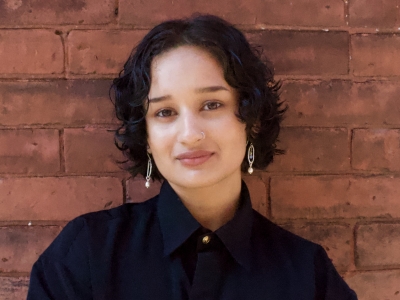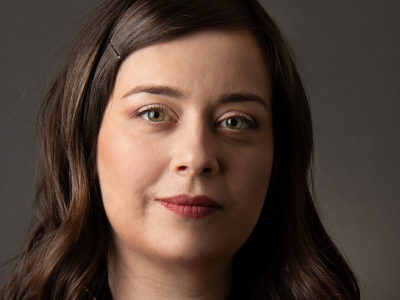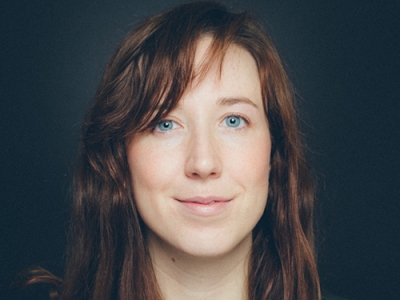By Mary Giles
Photos by Fangliang Xu
“I didn’t choose to become an activist,” says Rehana Hashmi, a human rights advocate and the inaugural Activist in Residence (AiR) in Carleton University’s Department of Law and Legal Studies. “I was forced into activism at age seven when my father went to prison for speaking out against the dictatorship.”
“I had to visit my father in jail, take care of my family and our store,” she says. “I brought my father food. Even after he was released, I brought fruit to the other prisoners. I began to see injustice all around me.”
Hashmi started to speak out in her school against her teachers who were using physical force to discipline students. Most of the time, she was punished. She raised money for girls her age whose families couldn’t afford the school tuition so they could continue their education.
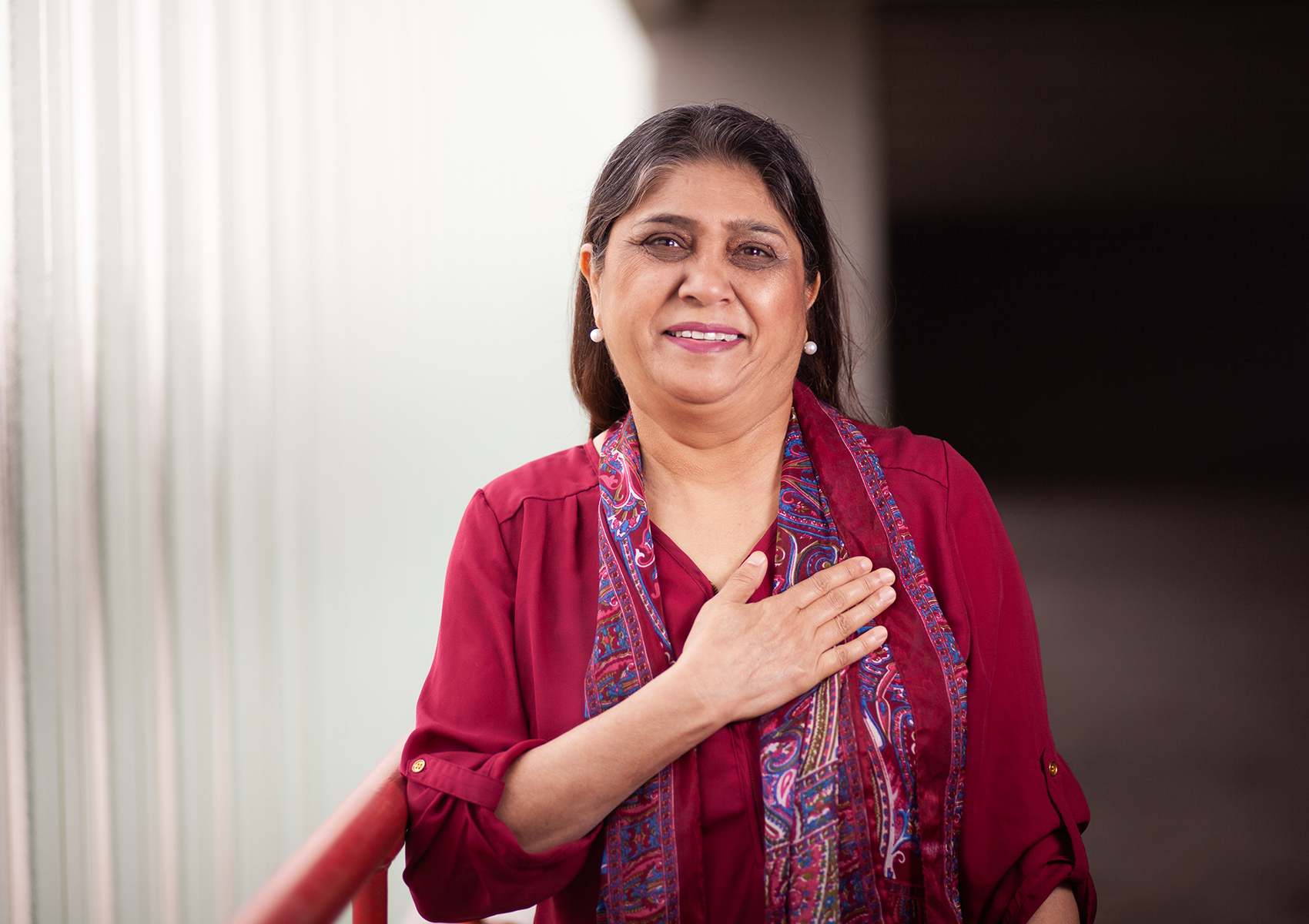
Rehana Hashmi, Activist in Residence, Department of Law and Legal Studies
Building on the department’s successful participation in the Scholars at Risk initiative, the new AiR program provides a home base for human rights activists within an academic setting, particularly for those at-risk. Students and faculty also have the opportunity to learn from someone with personal, lived experience fighting to protect human rights.
As part of the AiR program, Hashmi is working on a series of video interviews with human rights defenders from around the world. “When they are in exile, there should be mechanisms to protect them,” says Hashmi. “The Activist in Residence program is one way to do this.”
“Carleton is one of the first in Canada to start this type of program to help protect human rights defenders,” she says. “They can come, rest, reflect, recharge and do their work without being silenced.”
The Department will launch a series of AiR program initiatives in Summer and Fall 2021. “We hope this initiative will grow into a national network of Activists in Residence,” says Department Chair Vincent Kazmierski.
Dedicated to Activism
In 1979, when Hashmi was 17, the elected prime minister in Pakistan, Zulfiqar Ali Bhutto, was sentenced to be hanged by the militia army. “I didn’t know anything about activism or advocacy, but I knew that it wasn’t just,” she says.
“When he was sentenced to death, I was the student union’s general secretary at my all-girls school. I gathered all the students in my school and my sisters’ schools. We went out into the streets. This had never happened before in that conservative city.
“At that moment, there was no chance of going back. We marched towards the commissioner’s office. At that time, it was martial law, so no more than four or five people could gather. The police had never seen so many women all together. There were no women police officers, but the men started to push us back. We were afraid and dispersed.
“In the afternoon, the police came to my house to arrest me. My mother begged them not to take me in the police van. I said I hadn’t done anything wrong. The police officer said I had to leave the jurisdiction before dawn or I would be arrested.
“That night, my mother sent me in a barb-wired truck to stay with my uncle in another city. In that eight-hour journey, I thought about how I had brought shame to my family. I was worried that my sisters would not be able to marry because of my reputation.
“When I arrived, I became more resilient and I wasn’t going to sit quiet.”
Defender of Women’s Rights
After being exiled from her home city for her activist work, Hashmi became even more involved with activism, giving shelter to women who were beaten or had acid thrown on them. Through Sisters Trust Pakistan, Hashmi helped victims of domestic violence and women and girls to break free of religious fundamentalism and forced marriages.
“I was on the forefront, often on the road and railing against unjust laws and working for minority rights,” says Hashmi.
In 2011, Punjab governor Salmaan Taseer was assassinated for advocating for a Pakistani Christian woman, Asia Bibi, who drank water from a Muslim well and was sentenced to death under blasphemy law. Taseer spoke out against the blasphemy laws, saying they were not divine laws.
“Governor Taseer was shot by his own bodyguard,” says Hashmi. “Nobody did anything. It was a highly charged moment. People were afraid to speak out against Taseer’s assassination and many even agreed with it. I organized a big protest in Kohsar market, the place where he was killed.”
The protest attracted attention in Pakistan and the Global South. The New York Times published Hashmi’s picture at the protest and quoted her as saying that blasphemy laws were not divine laws and the killer should be punished.
“After this, fundamentalists were after me,” Hashmi says. “I was getting threatening calls, my car was followed and my daughter couldn’t go to school. I went to the police station. Instead of protection, they leaked the story to the media. Although I only gave the police phone numbers and license plates, the media said I was being threatened by the Taliban. This publicity made me even more vulnerable.”
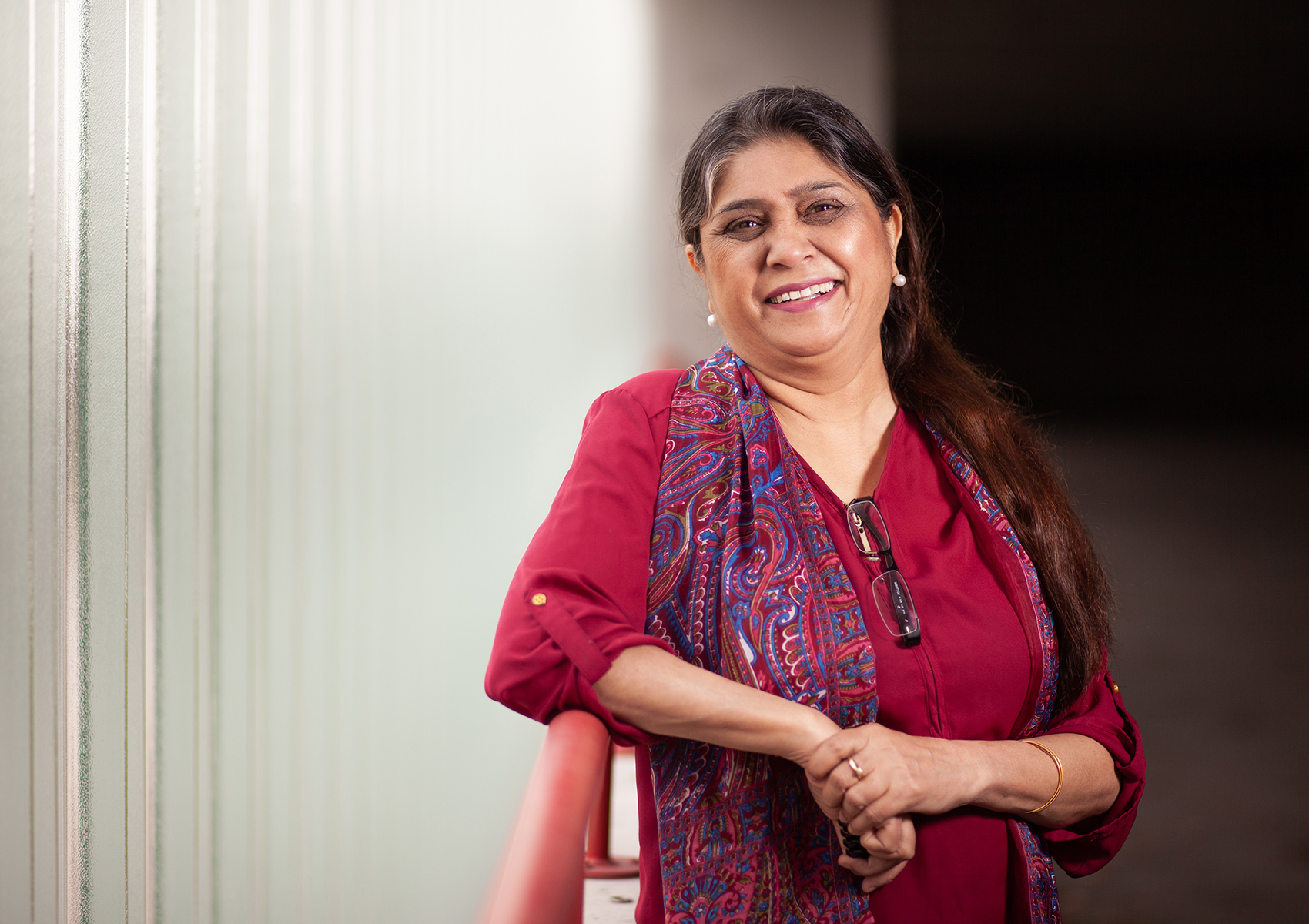
Human Rights Defenders as Refugees
The challenges in Pakistan are more difficult for women like Hashmi who are fighting to defend human rights. Offenders usually attack defenders who are men, but they also target women’s children and extended families. Women can’t always leave when they are at-risk. They may have many obstacles including limited mobility, family and societal restrictions to consider.
“When there are victims, we are there to protect as a shield,” says Hashmi. “We are the first line of defence. But when women defenders are under threat, there are not many mechanisms to protect them.”
“Some defenders are able to leave when they are threatened,” she says. “They come to countries where they feel safe, sometimes as refugees because there is no other relevant category to protect human rights defenders. There are many human rights defenders in exile, but many are silenced by the system or disappear as refugees. Activists are not always safe in the new country either.
“Even though we are at-risk in our own countries, we are also considered heroes by those we defend. In Canada, we often can’t work in our field because we have no Canadian experience, but is the experience so different than in other parts of the world? It is painful when your own work is not recognized.
“When I came to Canada in 2016, I came across a document on the Government of Canada’s website: Voices at Risk: Canada’s Guidelines on Supporting Human Rights Defenders. At the time, the guidelines were essentially gender-blind. Through the work of Amnesty International, Sisters Trust and other civil society members, we were able to have a section on women human rights defenders included. Women face more difficulties than men, more challenges and hurdles.
“When I first came to Canada, I really wanted to go back to Pakistan. I missed my work and I felt like a fish out of water.”
Patriarchy, Human Rights and Informal Justice
As Activist in Residence, Hashmi teaches a fourth year seminar on patriarchy, human rights and informal justice. Students learn how traditional patriarchal attitudes operate towards women and minorities seeking legal justice.
“Students in the course get to learn from many human rights defenders,” says Hashmi. “Through online learning, we have been able to bring in experts from around the world. Recently, mothers from Palestine and Israel presented in a JurisTalk about how they lost their children, but are still doing reconciliation work.
“Activists bring knowledge from the field to help students get a first-hand experience on how advocacy works. This knowledge narrows the gap between the Global North and Global South. Faculty and students benefit from stories from the field, but it also helps activists at-risk.”
Tuesday, May 11, 2021 in Department of Law and Legal Studies, Instagram Feature, News
Share: Twitter, Facebook

